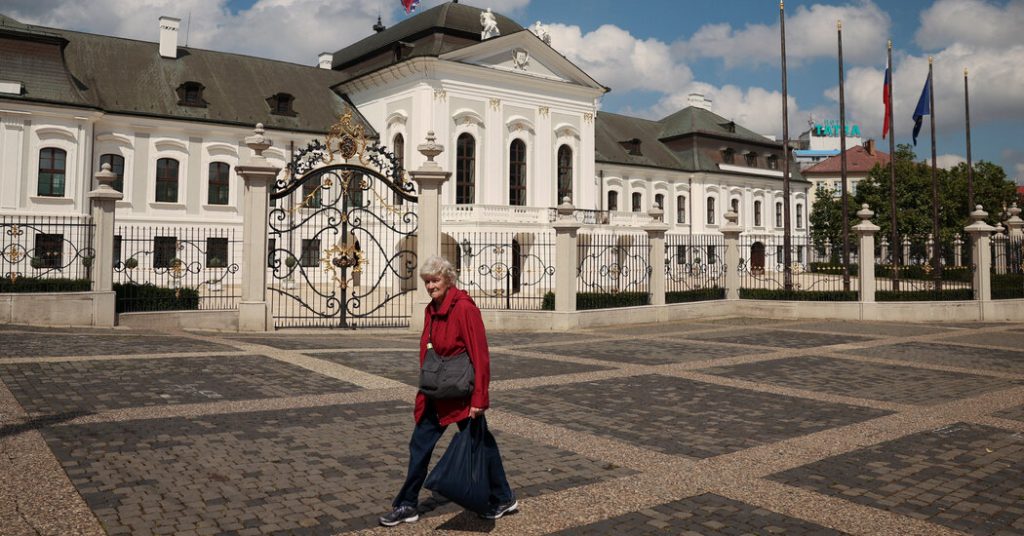More than 25 years after the United States called Slovakia a “black hole in the center of Europe,” the country is once again facing internal turmoil and political divisiveness. The recent attempted assassination of Prime Minister Robert Fico has led to a frenzy of finger-pointing and warnings of civil war, leaving many wondering if Slovakia has truly moved past its past autocratic tendencies. Prominent Slovak lawyer Roman Kvasnica believes that the country may have never truly escaped the black hole, citing a political culture rife with threats and insults. He displays a portrait of Vaclav Havel, an icon of democratic ideals, as a reminder of the road not taken by Slovakia during its early years of independence.
Efforts to unite opposing parties in Slovakia and establish basic rules for decent political discourse have failed, with some politicians showing a lack of self-reflection in the aftermath of the assassination attempt on Prime Minister Fico. Deputy Prime Minister Robert Kalinak’s assertion that the gunman may not have acted alone has added to the unease in the country. The only person charged in the case so far is a 71-year-old man with no strong political affiliations but harbored grievances against the system, reflecting a common sentiment among many Slovaks who feel resentful and left behind despite the country’s successes.
Despite being a successful model of transition from communism and integrating well into the European Union, Slovakia faces a paradox where a significant portion of its population views liberal democracy as a threat to their identity and values. This sentiment is reflected in the high proportion of citizens who see Russia as a strategic partner and the prevalence of conspiracy theories and anti-Western narratives. This trend has allowed politicians like Prime Minister Viktor Orban in neighboring Hungary to establish authoritarian systems, while Slovak politics remain mired in toxicity and polarization.
The current political conflict in Slovakia highlights the ongoing struggle between Western values and illiberal, authoritarian tendencies within the country’s leadership. Prime Minister Fico and his allies have taken a hostile stance toward the United States and Ukraine while expressing sympathies for Russia, echoing earlier sentiments from figures like Vladimir Meciar who resisted Western influence and looked towards Russia as an alternative ally. Despite this conflict, there is no immediate risk of Slovakia severing ties with the EU and NATO, but the choice between Western values and authoritarian governance remains a central theme in the country’s political discourse.
The roots of Slovakia’s current woes extend beyond its early struggles under Vladimir Meciar, with the country now facing a wider crisis of national populism and democratic backsliding seen in other countries across Europe. Former Prime Minister Iveta Radicova warns that many democracies are moving towards a “black hole” as they succumb to the allure of national populism, with countries like Hungary and the Netherlands also experiencing similar challenges. Despite these difficulties, there remains hope that Slovakia can overcome its internal divisions and continue down the path of democratic development and EU integration.













